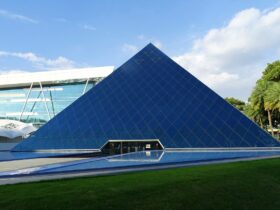Halal mortgages offer a unique, Sharia-compliant way for Canadians to finance their homes without involving interest, aligning with Islamic teachings which prohibit usury. As Canada sees a growing demand for inclusive financial products, the federal government has been actively exploring ways to enhance the accessibility of such options, as highlighted in the 2024 federal budget.
What Are Halal Mortgages?
Halal mortgages, unlike traditional home loans, do not involve interest payments. Instead, they utilize profit-based models where the lender and homeowner share the property investment and benefits. These mortgages adhere strictly to Islamic laws (Sharia) which forbid earning interest from loans.
How Halal Mortgages Work
There are several types of halal mortgage arrangements available in Canada:
- Ijara (Lease to Own): This arrangement functions like a rent-to-own setup. The financial institution buys the property and leases it to the client, who eventually becomes the owner.
- Murabaha (Cost Plus): Here, the lender purchases the home and sells it to the borrower at a profit, ensuring fixed payments without fluctuating interest rates.
- Musharaka (Joint Venture): Both parties initially share the property’s ownership. Over time, the borrower buys out the lender’s share, ultimately owning the property outright.
These models ensure that all transactions are commodity-based, meaning they involve real assets, which differs significantly from conventional debt-based financing.
The Appeal of Halal Mortgages
One of the key advantages of halal mortgages is the stability they offer; for example, the Murabaha model provides fixed payments throughout the mortgage term, shielding borrowers from interest rate volatility. This can make financial planning more predictable and less risky, particularly appealing in volatile economic times.
Challenges and Costs
Despite their benefits, halal mortgages often involve higher initial costs than traditional loans because they are not supported by the same financial structures and low-cost capital. This can make them less accessible for some potential homeowners. However, these costs reflect the more ethical, risk-sharing approach that these mortgages employ, which many find justifiable.
Broader Implications and Government Support
The Canadian government recognizes the importance of such financial products in fostering a more inclusive economy. By considering legislative changes and possibly creating new financial regulations, Ottawa hopes to make these options more accessible and affordable.
Anyone in Canada, regardless of their religious beliefs, can apply for a halal mortgage. Prospective borrowers should ideally have a robust credit history and a steady income to manage the payments, along with a minimum down payment of 20%.
As the market for alternative financing like halal mortgages grows, it represents not just a financial choice, but also a reflection of Canada’s diverse and inclusive society.













Leave a Reply